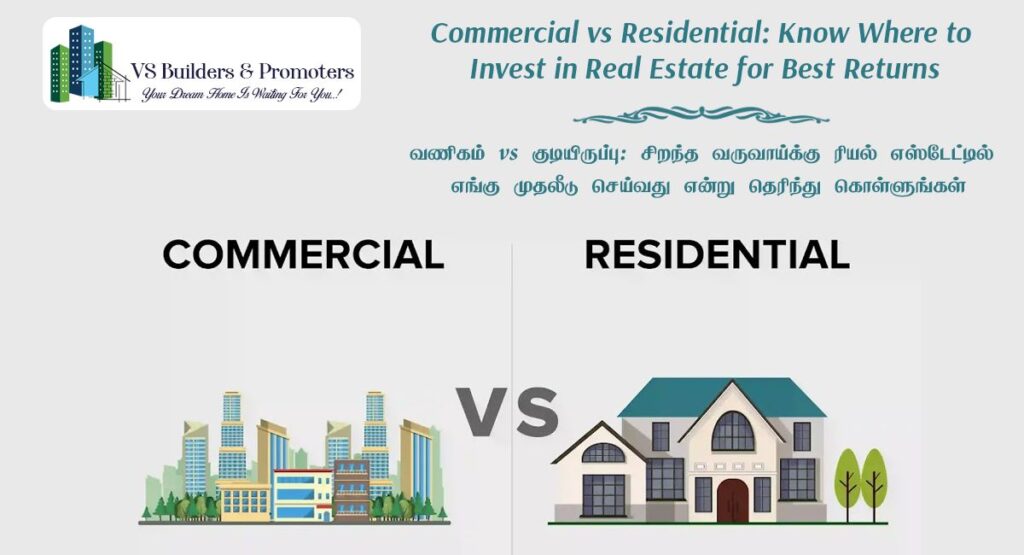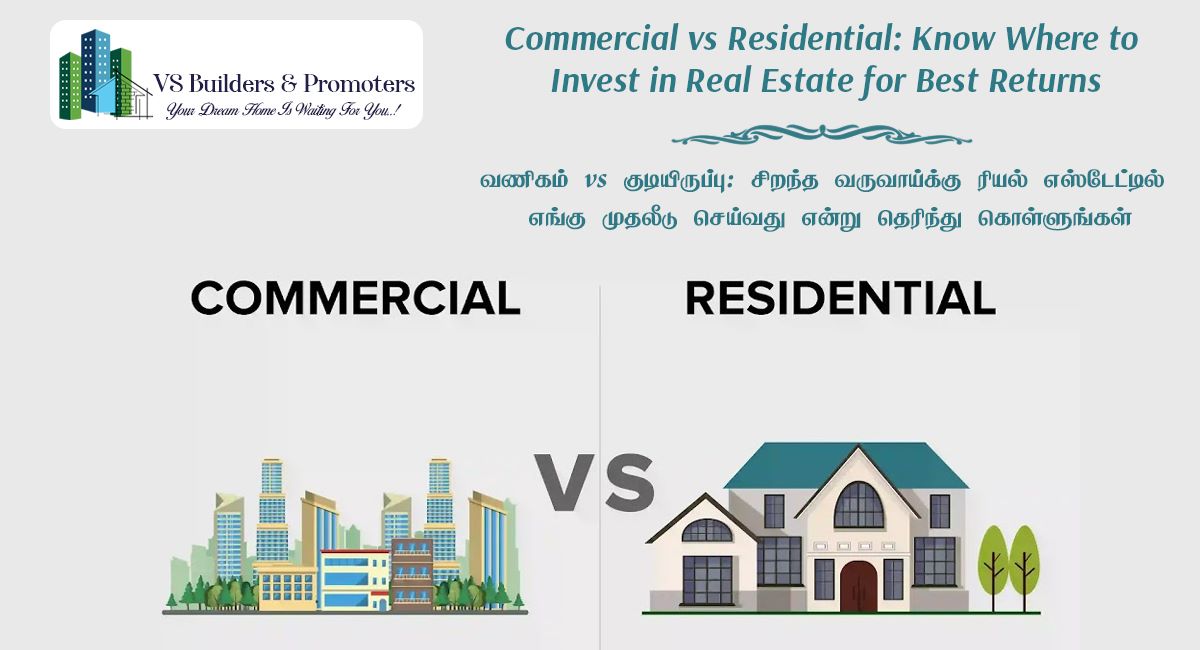
Deciding between investing in commercial Vs residential real estate depends on various factors, including your investment goals, risk tolerance, market conditions, and personal preferences. Commercial Vs residential real estate refers to properties used for business or income-generating purposes. This includes office buildings, retail spaces, industrial properties, warehouses, and hotels.
Commercial properties generally have higher income potential compared to residential properties. Lease agreements with commercial tenants are typically longer, resulting in more stable and predictable rental income. Moreover, rental rates for commercial spaces are often higher than residential properties, leading to potentially higher returns. Commercial leases are commonly signed for longer durations, such as several years, providing more stability as tenants are less likely to move frequently compared to residential tenants. However, there may be periods of vacancy between tenants, especially in economic downturns.
Commercial properties often require a larger initial investment compared to residential properties. They have higher purchase prices, and maintenance and operating costs can be significant. Financing for commercial properties may also have stricter requirements. The performance of commercial real estate is closely tied to economic conditions and market demand. Factors like job growth, business development, and market trends impact the demand and rental rates for commercial spaces.
Commercial & Residential Real Estate:
Residential real estate involves properties used for residential purposes, including single-family homes, apartments, and condominiums. Here are some considerations. Residential properties can provide rental income and potential appreciation over time. However, rental rates may be lower to commercial properties, and there may be periods of vacancy between tenants.
Residential properties cater to a broad tenant pool, including individuals, families, and students. This diversity can help minimize the impact of a potential vacancy, especially in areas with high demand for rentals. Financing options for residential properties are generally more accessible and have more favorable terms compared to commercial properties. This can make it easier for individual investors to enter the residential real estate market. For more details, contact us.


